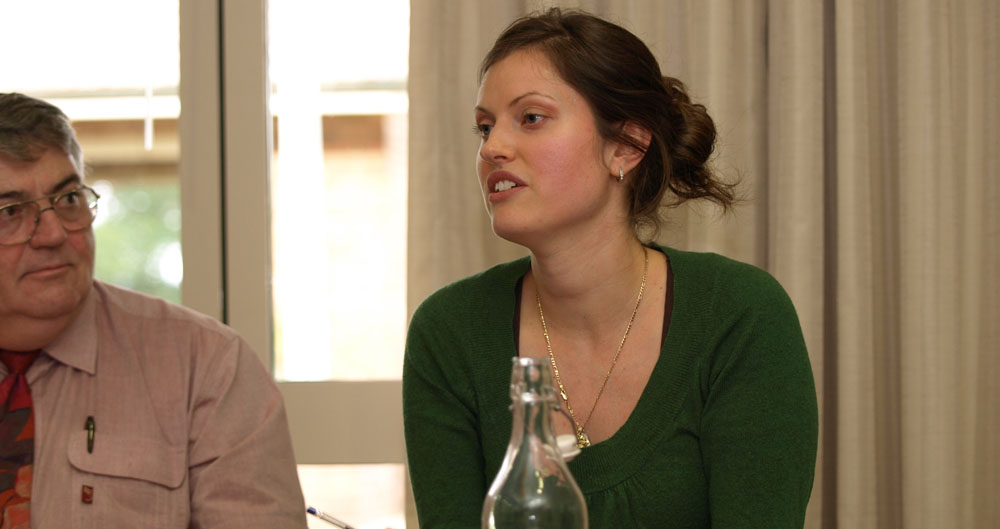Oct 2010
The possible issues that could be discussed are numerous. I chose to therefore focus on two broad areas. I have decided to cover, the difficulties faced by clinicians, in terms of moral and theological issues, and, secondly, the issues that give rise to stress or problems for the couples in the marriage itself.
The first area is a clinician focused area, and relates to the clinician working in an area where morality and ethics comes up. When marriage counselling is going well and the couple are responding to the therapy suggestions it does not raise such ethical issues. On the contrary, ethical issues can arise, for example, when couples are separating, divorcing, issues of eligibility for an annulment come up, and when individuals who come to marriage counselling in relation to a second marriage they are having trouble in. As a clinician, these issues have taken up my mental time and energy, trying to sort out the ins and outs of the situation. I am however, realising, that it is the couples responsibility and decision if they are to end a relationship and that my job is to try to not take on this burden of their failed marriage. Similarly, a feeling of having failed on behalf of the clinician can occur when couples decide to divorce or separate. The other thing I have realised is that the moral and theological domain is for the priests, and my job as a psychologist is not primarily to know the answers on these moral and theological issues.
The second part of this paper, focuses on the issues that give rise to problems in marriage. Some of the contemporary negative factors that affect marriage today, include, the usual stresses of modern day living (that is, mortgage stress, having too many options to chose from, two income families, time pressures, increased access to pornography, etc). These, I would say, are largely fixable, with education, motivation and perseverance to bring about lifestyle changes (provided they are not complicated by other factors, which will be discussed below). Some other factors that affect couples that are also more straightforward to treat, include communication problems and insensitivity of each to the other. Treatment for such is learning and implementing new communication strategies, and being aware of the different ways individuals both give and receive love. The latter has been outlined by Gary Chapman (1995) in his work on the “Five Love Languages”. This type of work or education can be done in marriage preparation classes.
I realise this may seem like an oversimplification of the problems, and I acknowledge that such work to resolve difficulties in a marriage do not always go as straightforward as we would hope. However, the bigger problems and more serious, I would argue, are when, the couple knows, intellectually (and I stress intellectually) what and how they should change, but for some reason do not implement this knowledge by changing their behaviour and attitude. This is commonly referred to as the “head knowledge not transitioning to the heart knowledge”.
The reasons for couples not changing for the better, or for the marriage not getting better with counselling (or the other case, where improvements made during counselling sessions, are not maintained once the sessions stop), is because of, some personality or psychological issues of either one or both parties that interfere with having a better and healthier marriage. These factors get in the way of treating one another as God intended them to.
Psychological or personality issues can include (and this is not an exhaustive list), being controlling, overly defensive, critical, punitive, entitled, stubborn, perfectionistic, and self-centred. This will obviously affect a relationship. Take, say, a husband who unconsciously believes he is going to fail or be abandoned. He unconsciously, keeps a distance from his wife, because unconsciously he fears she will not be there for him. These types of issues will not be fixed by simply teaching the couple how to communicate better. Another example, may be a wife who fears intimacy with a male, because she grew up with a distant and emotionally cold father. She experiences anxiety on a daily basis, and increased anxiety when her husband tries to be close to her emotionally and physically. Punitive personality types that try to punish each other also cause great amounts of stress and turmoil in relationships.
To my knowledge, this type of problem would require that the person be seen individually for in depth psychological therapy. Further, simply telling a person what their problem is without the psychological work, will increase their self-knowledge, or insight, but it is not going to necessarily mean they will change. For example, people can go to seminars and learn a lot about themselves, but it does not mean they will receive psychological healing for these wounds. It only tells them that they have a problem. Hence, psychological intervention is needed. Also, I do not want to make it sound like, psychological intervention is the answer, because, sadly it does not help everyone, and God is beyond all. We try however, and hope for the best.
Mary Ticinovic
Clinical Psychologist
Reference: Chapman, G. (1995) The Five Love Languages. Northfield Publishing. Chicago.





